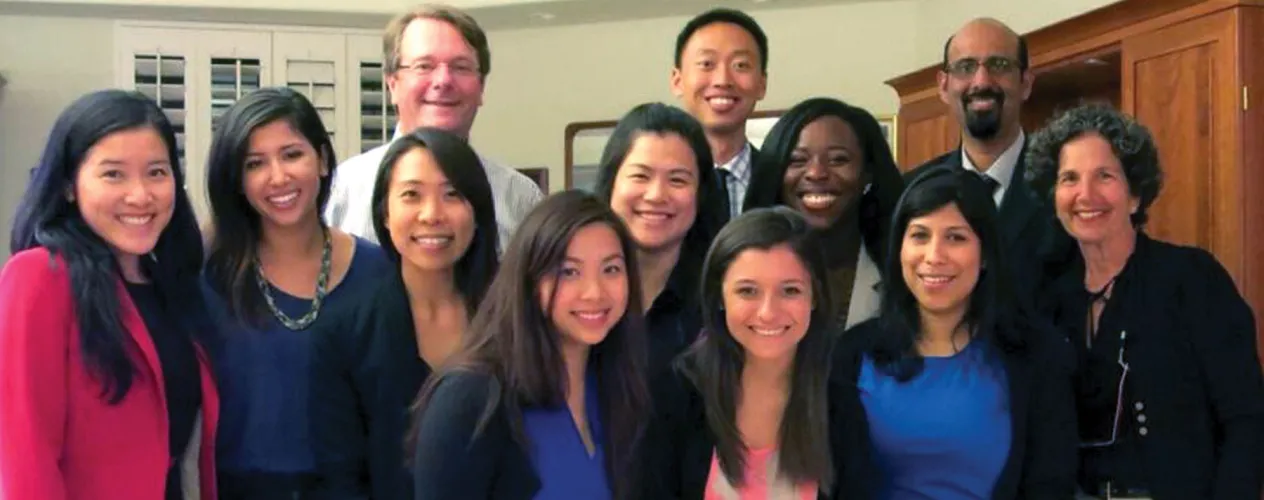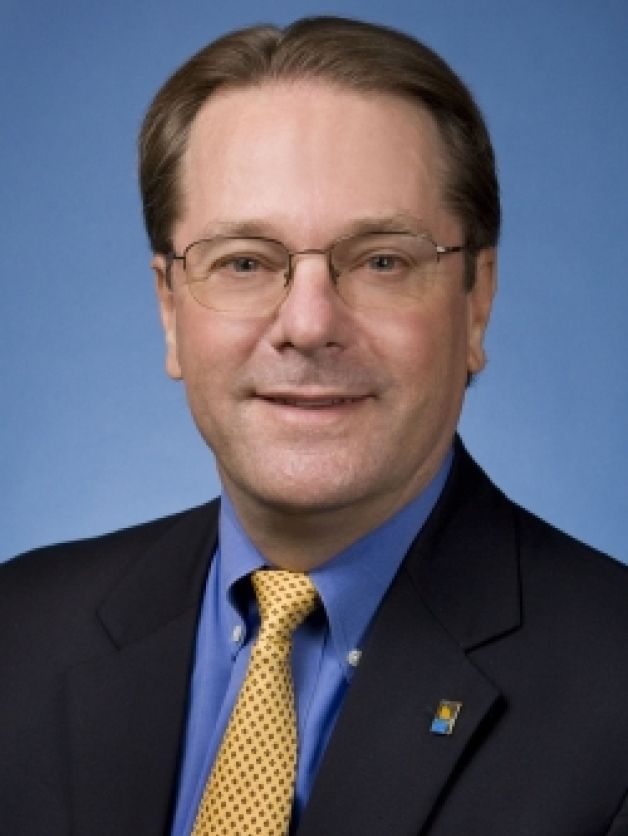
Holding the Door Open
At the end of a career dedicated to expanding access to healthcare, Dr. Gerald Kominski has established a scholarship to provide first-generation college graduates with the same financial support that paved the way for his work.

As he neared retirement after more than three decades on the UCLA Fielding School faculty, Dr. Gerald Kominski knew what he wanted to leave as part of his legacy.
During his 32 years at the school, Kominski, a professor in the Department of Health Policy and Management and senior fellow at the FSPH-based UCLA Center for Health Policy Research (CHPR), has been a leading voice in California and nationally on issues related to healthcare reform and expanding access to care, including the expected and actual impacts of changes under the Affordable Care Act (ACA). He co-led the development of the California Simulation of Insurance Markets (CalSIM) model, which is used by Covered California, the state’s ACA-created health insurance marketplace, to forecast eligibility, enrollment, and expenditures under the landmark law; prior to that, he was vice chair of the Cost Impact Analysis Team of the California Health Benefits Review Program, which assesses proposals by the state legislature to expand mandated insurance benefits. Kominski was FSPH’s associate dean for academic programs from 2001 to 2008, and CHPR director from 2012 to 2018.
None of that would have been possible, Kominski says, without the sacrifice and encouragement of his mother and father, whose formal education stopped at sixth and ninth grade, respectively, and the fellowship support that enabled him to earn a PhD in public policy analysis from the University of Pennsylvania.

With his own experience in mind, upon his retirement in June, Kominski is returning the favor. Once fully endowed, the Gerald F. Kominski Health Policy Fellowship will be awarded each year to an entering MPH health policy student who, like Kominski, is a first-generation college graduate. “I know firsthand the many challenges faced by students who are the first in their families to graduate from college and then seek a graduate degree,” Kominski explains. “I also know the profound impact financial support can have for these students. I wanted to create a fellowship that would make it easier for students to focus on a career in health policy and not have to start their career with substantial debt.”
Kominski was one of four children raised in Baltimore by parents who grew up in poverty during the Great Depression. College hadn’t been an option for either parent, and both worked hard to ensure that their children would attend college and lead better lives.
We’re seeing a new generation driven to tackle the systemic inequalities in our system and not accept the status quo. Supporting this next generation of students at the Fielding School feels like a wonderful investment.

Dr. Gerald Kominski
Kominski was only 6 when John F. Kennedy ascended to the nation’s highest office, but the charisma of the newly elected president captured his imagination. Watching the massive March on Washington and other pivotal events of the civil rights movement awakened in him a passion for social justice that would shape his career aspirations. Those aspirations crystallized when Kominski was an undergraduate at the University of Chicago. “I saw healthcare as a moral issue — the idea that we should treat people equally based on their medical condition, not on their insurance status,” he says. “Health policy seemed to be one way to correct some of the inequality in our society.”
With the fellowship support that allowed him to enter Penn’s PhD program, Kominski got involved in research evaluating a pilot program in New Jersey to fundamentally change the Medicare payment system, using what are now known as diagnosis-related groups to determine reimbursement levels for hospital care. When the federal government adopted the New Jersey experiment as the basis for national reform, Kominski’s dissertation work left him ideally situated to transition from the doctoral program to a position on the staff of what would become the Medicare Payment Advisory Commission. He spent three-and-a-half years developing evidence-based policy recommendations that led to changes in the hospital payment program before concluding he wanted the research independence associated with academia. Kominski joined the FSPH faculty in 1989.
For much of the next decade, he worked on research aiming to strengthen public insurance programs — Medicare, Medicaid, and workers’ compensation — through various economic incentives for paying hospitals and healthcare providers. But as the landscape in California and nationally began to shift in favor of universal coverage, Kominski increasingly focused on meeting the needs of advocacy groups and policymakers for data to better understand the cost and eligibility impacts of proposed reforms.
By the time the ACA was enacted in 2010, Kominski and colleagues at UC Berkeley had received funding to develop CalSIM, and would soon begin a partnership with Covered California to produce semiannual estimates that continue to guide the program’s planning and outreach efforts.
In recent years, Kominski has dedicated himself to initiatives that assist policymakers in making informed decisions as they seek to expand coverage. With his UC Berkeley colleagues he is actively engaged in the California Health Policy Research Program, bringing together frontline policy advocates and academic policy researchers in the state to outline the options and how they can be most effectively informed by data analyses. Kominski has also been a regular presence in the news media and at community meetings on issues related to the ACA and healthcare reform. “The people of California pay my salary, so I’ve always felt I should make myself broadly available to speak where invited,” he says.
Just a few years after Kominski was first inspired by JFK, President Lyndon B. Johnson signed into law two of the most significant social programs of the last 60 years, Medicare and Medicaid. Kominski points out that Medicare was intended by its authors to be a first step toward the U.S. joining much of the rest of the world in ensuring universal health coverage. While that goal has proved elusive, he remains optimistic. “We’ve seen more movement in the last decade than in the previous four decades,” Kominski says. “The Affordable Care Act was the most significant piece of health legislation in terms of expanding coverage since the enactment of Medicare and Medicaid, and California has built on that as a foundation. With roughly 30 million people uninsured we still have a long way to go, but we’re now talking about Medicare for All, a universal single-payer system. There is a lot of opposition, but also broad public support for universal coverage, and the pressure to expand access isn’t going to go away just because it’s a difficult problem to solve.”
Kominski draws much of his optimism from his students, and sees the Gerald F. Kominski Health Policy Fellowship as the ideal way to repay the support he received. “My students have always kept me on my toes,” he says. “And now, we’re seeing a new generation driven to tackle the systemic inequalities in our system and not accept the status quo. I feel privileged to have benefited from a fellowship in graduate school that allowed me to go on to a challenging and fulfilling career during a time when our country has experienced some of the greatest health policy advances. Supporting this next generation of students at the Fielding School feels like a wonderful investment.”